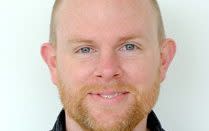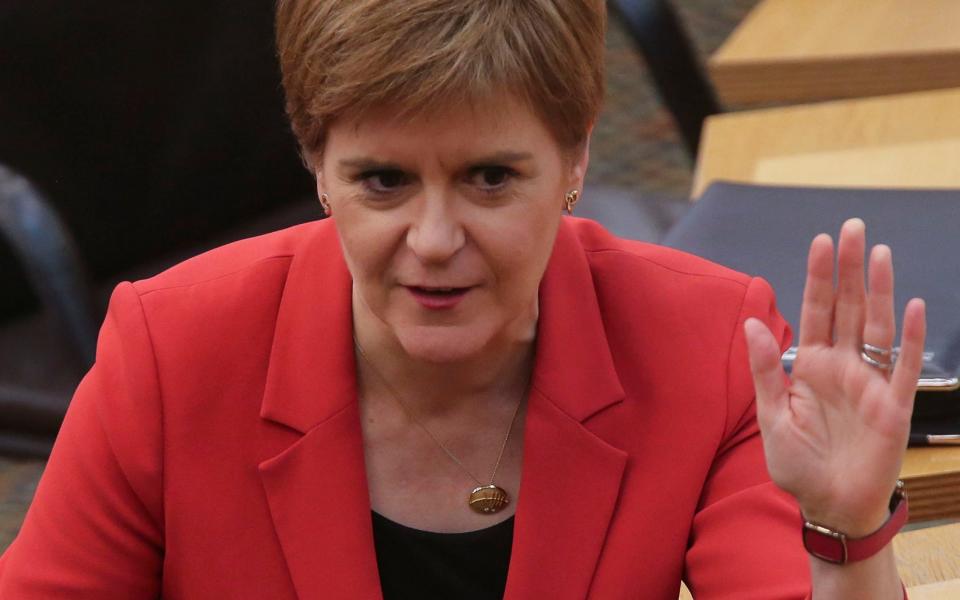Shetland to explore options for independence amid anger at Nicola Sturgeon hoarding power and money

One might imagine that Nicola Sturgeon would be delighted that an independence vote had been overwhelmingly approved for Scots to break away from an overbearing and power-hungry government.
But unfortunately for the First Minister the ballot that will take place is not the second referendum she is demanding Boris Johnson grants on Scotland separating from the UK.
Instead the Shetland Islands are to explore options for greater independence amid intense frustration at Ms Sturgeon's government hoarding power and money.
Councillors on the islands voted by 18 to two in favour of examining how they could achieve “financial and political self-determination”. Any constitutional change would be put to its 23,000 residents in a referendum.
Watch: Yahoo UK Finance Reporter Edmund Heaphy explain what a no-deal Brexit actually means, and its potential consequences...
Although creating a separate nation state is not on the cards, they will explore whether the islands could become a self-governing Crown dependency like Guernsey, Jersey and the Isle of Man.
And while an independent Scotland would face wrestling with the highest public spending deficit in Europe, the Shetlanders believe they would have the wealth and high-tech industries to flourish.
The islands are even getting their own Cape Canaveral, with the island of Unst being picked as the location of a spaceport and the UK's first commercial rocket launch next year.
If the spaceport on the small Scottish island is given planning permission by local authorities, the move could see dozens of new jobs generated in the area.

Shetlanders could also lay claim to North Sea oil tax revenues from their waters, wreaking more damage on Ms Sturgeon's economic case for a separate Scotland.
And the islands' remote location, around 130 miles north of the Scottish mainland, mean they have huge potential for generating wind, wave and tidal energy.
Steven Coutts, the local authority leader and an independent councillor, said: "There’s a host of opportunities around Shetland and we need to grasp them."
The residents of Scotland's Northern Isles have traditionally been hostile to Scottish independence. They were part of Norway until the late 15th century.
Before the 2014 independence referendum, the islands' MPs and MSPs argued that they should be given an opt-out if Scots on the mainland voted for separation from the UK.
Lord Lamont of Lerwick, the former Tory Chancellor, who is from Shetland, also suggested in 2017 that the islands could become a British overseas territory if the rest of Scotland became independent.

Shetland's councillors voted during a meeting of the full council on Wednesday on a motion to examine options for greater self-determination "to ensure Shetland can reach and maintain its full potential."
It read: "In recent times we have seen more and more decision making being centralised and public funding being consistently reduced.
“We are concerned that this ongoing situation is seriously threatening the prosperity, and even basic sustainability, of Shetland as a community."
Many of the councillors who took part in the debate emphasised passing the motion was a mandate for exploring options rather than any specific action.
But councillor Coutts said that remote decision making by Holyrood and Westminster “just does not work” for Shetland, referring to his belief that the creation of the Scottish Parliament in the 1990s has not had much of a beneficial impact.
He told the Telegraph: "There's various models around the world such as the British Crown dependencies and we need to do work on what model we're looking for."
In the debate preceding the vote, he noted that Alex Salmond had argued in 2013 when he was First Minister that "the people who live and work in Scotland are best placed to make decisions about our future".
Councillor Ryan Thompson said: "Can anyone sitting around this table - and indeed remotely - honestly say that we haven't witnessed almost a complete erosion of our democracy, ironically since devolution?"
Mr Coutts said: "Replace Scotland with Shetland and that's the motion here today, and I encourage you to support it".
Jamie Halcro-Johnston, a Tory MSP for the Highlands and Islands, said it was "no wonder islanders have run out of patience" with the Scottish Parliament as "so much power is centralised in Edinburgh and the needs of Shetland often ignored."
Paul Wheelhouse, the SNP's Islands Minister, said legislation passed in 2018 allowed councils to request the transfer of powers from the Scottish Government but no applications had been submitted yet.

 Yahoo News
Yahoo News 